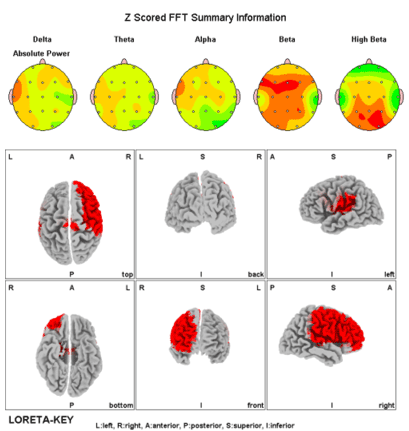Exploring How Sleep Ailments Interfere with Brainwave Function and Impact Cognitive Function
Exploring How Sleep Ailments Interfere with Brainwave Function and Impact Cognitive Function
Blog Article
Sleep is an crucial part of our daily lives, enabling our physical selves and minds to rest and recover. However, many individuals suffer from slumber disorders, which can considerably disturb sleep patterns. These disorders can result to multiple issues, including changes in brainwave activity. Neural waves are electronic impulses in the brain that reflect our cognitive state and function. When sleep is disturbed, the typical patterns of neural waves can be impacted, resulting to problems with mental function, such as recall, focus, and decision-making.
There are various types of sleep disorders, including insomnia, slumber apnea, and unsettled leg syndrome. Insomnia is defined by difficulty going or staying asleep, while slumber apnea involves interruptions in breathing during slumber. Unsettled leg syndrome causes discomforting sensations in the limbs, leading to an compelling desire to move them. Each of these disorders can disturb the natural sleep cycle, which comprises of different stages, including shallow sleep, deep sleep, and REM (rapid eye movement) sleep. Each stage holds a crucial role in preserving overall brain health and function.
When slumber disorders interfere with these stages, neural wave activity can become irregular. For instance, during profound sleep, the brain generates slow delta waves, which are essential for bodily restoration and recall consolidation. If a individual experiences repeated awakenings or does not reach profound sleep, the generation of these delta waves is reduced. This can result to difficulties in learning new information and holding memories. Additionally, REM sleep, which is associated with fantasizing and emotional processing, is also affected. Interruptions in REM sleep can lead to issues with emotional regulation and inventiveness.
The effect of sleep disorders on mental function is substantial. Research has demonstrated that individuals with slumber disorders often experience difficulties with focus and focus. This can affect their performance at educational institutions or work, making it difficult to finish tasks or participate in discussions. Furthermore, chronic slumber deprivation can result to mood changes, heightened stress, and even nervousness or depression. These cognitive and emotional challenges can create a vicious cycle, where inadequate sleep leads to mental difficulties, which in turn can lead to more sleep problems.
Tackling sleep disorders is essential for improving brainwave activity and mental function. Therapeutic options may include habitual changes, such as establishing a consistent sleep schedule, establishing a comfortable sleep environment, and engaging in relaxation techniques. In some cases, clinical intervention may be necessary, such as using a CPAP machine for slumber apnea or pharmaceuticals for insomnia. By prioritizing slumber and pursuing appropriate care, individuals can improve their overall cognitive abilities and boost their quality of life. Understanding the relationship between slumber disorders, brainwave activity, and cognitive function is an essential step toward improved health Learn More Here and well-being.